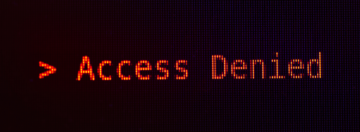A Typical Day for a Background Investigation Adjudicator

Adjudicators must be decisive and efficient critical thinkers to make quality adjudicative decisions and meet timeliness standards, ensuring mission readiness and risk mitigation. They require a strong knowledge of the policies and procedures that govern adjudications and need to be able to efficiently review a subject’s case, identify the information relevant to national security, and be able to discern whether the subject, all-things-considered, poses an unacceptable security risk.
On any given day, adjudicators review a variety of cases (as many as 30 to 50 a day), including initial investigations, reinvestigations, continuous evaluation alerts, and incident reports. Depending on the security concerns present, they may be able to make a favorable determination without any additional action or follow-up. If security concerns are not mitigated then they may draft some form of correspondence, whether it be a memo requesting more information from the command/subject or documents proposing denial or revocation of a subject’s eligibility for access to classified information that explain the concerns supporting that decision.
Drafting correspondence, whether to request more information or to recommend denial/revocation of a subject’s eligibility is one of the most time-consuming tasks for an adjudicator. However, it also means the case is probably interesting and contains important security concerns that need to be addressed. When sending out a Letter of Interrogatory (LOI) or a Statement of Reasons (SOR) adjudicators must ensure it is based on facts from the Report of Investigation (ROI). This puts the applicant on notice as to exactly what the issues are, why they are of concern, and under what guidelines. This ensures applicants have the information needed to provide mitigation of the concerns. Why is this important? Because during the appeal process procedural matters are looked at by the appeals judge to ensure the agency followed the rules and governing guidance.
From my own experience, the most important aspect of adjudication is ensuring I have identified all the issues present, if any, and quantifying in writing as to why they are or are not disqualifying under the various adjudicative guidelines for national security, suitability, fitness, and credentialing. I would say for the most part, 90% of the cases involve no issues or only minor issues that are mitigated without further action. However, when a major issue case comes in, I clear my desk of everything else so I can fully concentrate on that case only and draw up a detailed synopsis of the disqualifying issues. Adjudicators are an unheralded, but important piece of the background investigation process.



I would like to know more about these self-mitigating issues…
What is/are consider as minor issues?
Minor issues are not self-mitigated. The adjudicative guidelines provide rules and guidance on what types of mitigation can be applied by the adjudicator.
Minor issues are those that do not rise to the level of concern that an action is needed, e.g., one misdemeanor for DUI, a couple of collection accounts, traffic citations, or even illegal drug use in some cases as long as it wasn’t recent and not associated with criminal conduct.
Thank you for feedback.
My security clearance was revoked and I paid close to 20,000 in my defense. Adjudicators and management work together if they want to remove you from your position. I was the 10 percent that did lost his security clearance.
I am sure you did nothing wrong.
My story is complicated in which I do not want to post. I received a settlement agreement in which I could not whistle blow of many other restrictions.
I have a wire fraud felony from a mortgage transaction that I spent 2 years in prison for when I was 22. The offense was in 2006 but the prison time and guilty plea was 2015… so even though I’ve been out of prison now going on 3 years the offense is pretty old and college age. I explained all this throughly in my sf86 and my interview.
I assume I am receiving a sor. And waiting on the password… I didn’t think my felony was automatically disqualifying and I gave my mitigation factors in both my interview and application.
What more would an adjudicator be looking for? I’m speculating as to what’s going on because I haven’t received my password for the pdf in a few days.
One thing to mention is I submitted my sf86 in June 2018 and had my interview in nov 2018.
Also if you sent an SOR to an applicant would it still show pending in jpas?
I just heard from my adjudicator that my application for a Q clearance is being passed down the line. The hr reps at my company said thats a denial.
My denial is for bad credit. I spoke with an attorney and he said my case is a very easy win in his book if i appeal. I would like to appeal but im an engineer and non union and i will most likely be terminated. I know in dod terms that means i loose my right to an appeal. I believe that in the DOE world i can still appeal my case. Does anyone know if this is true?